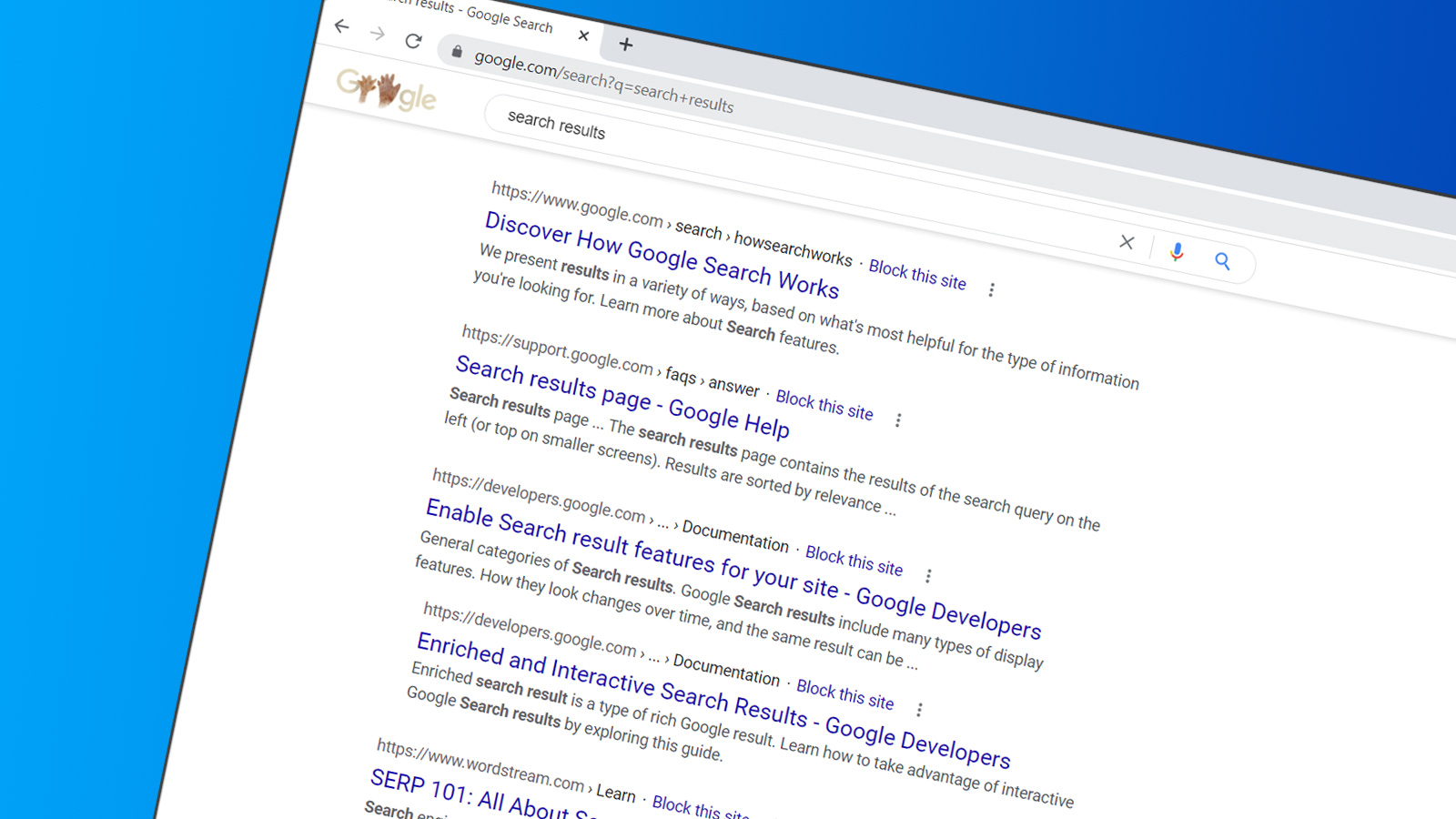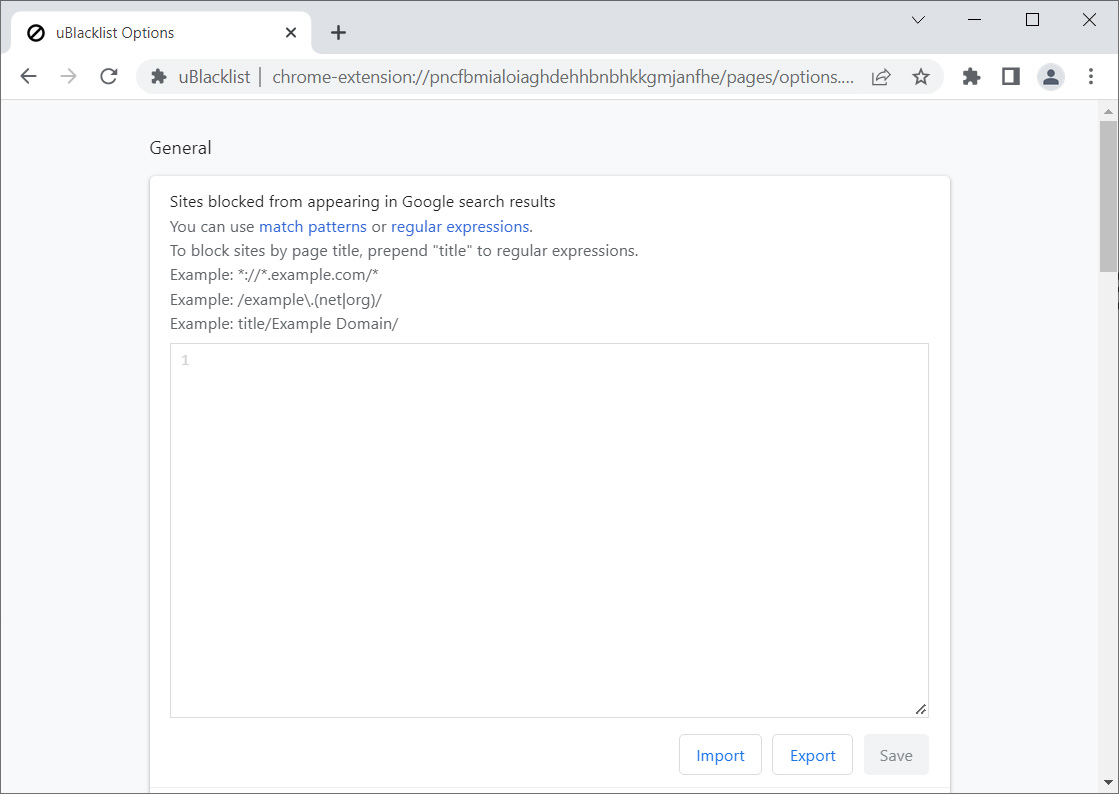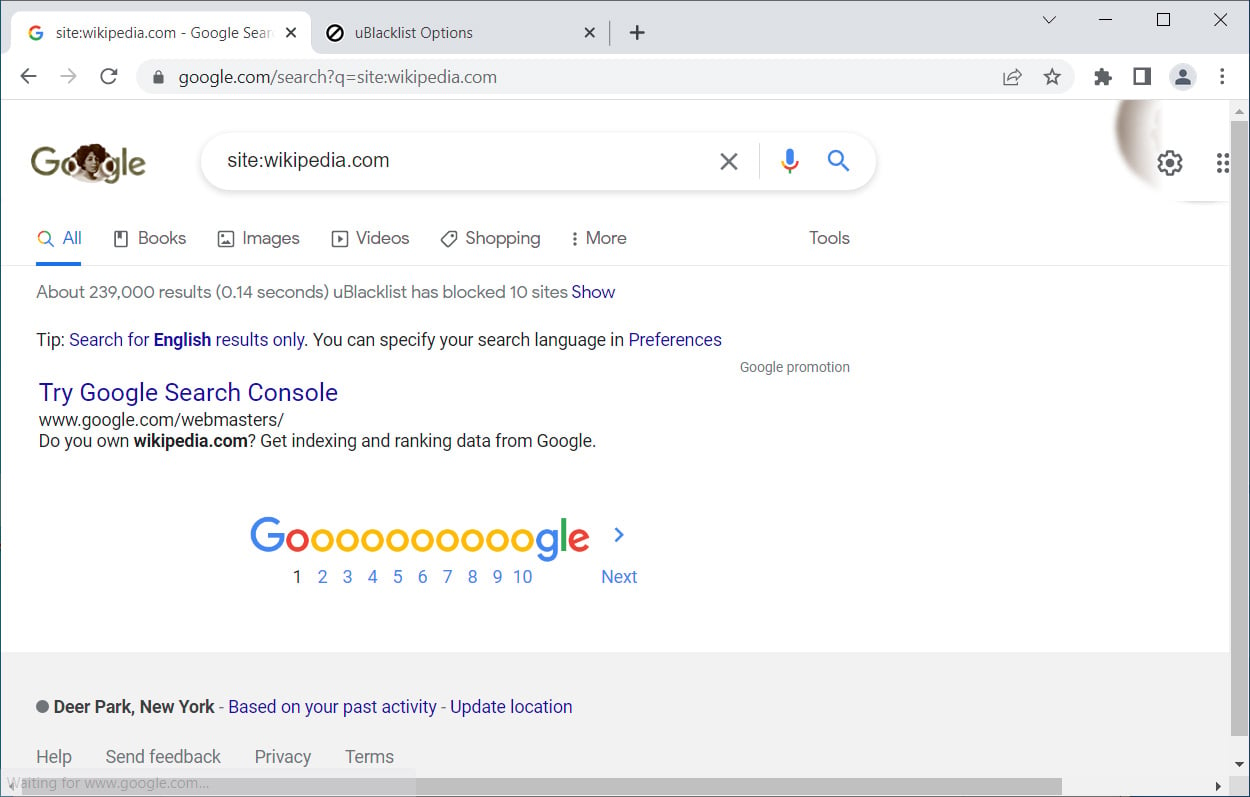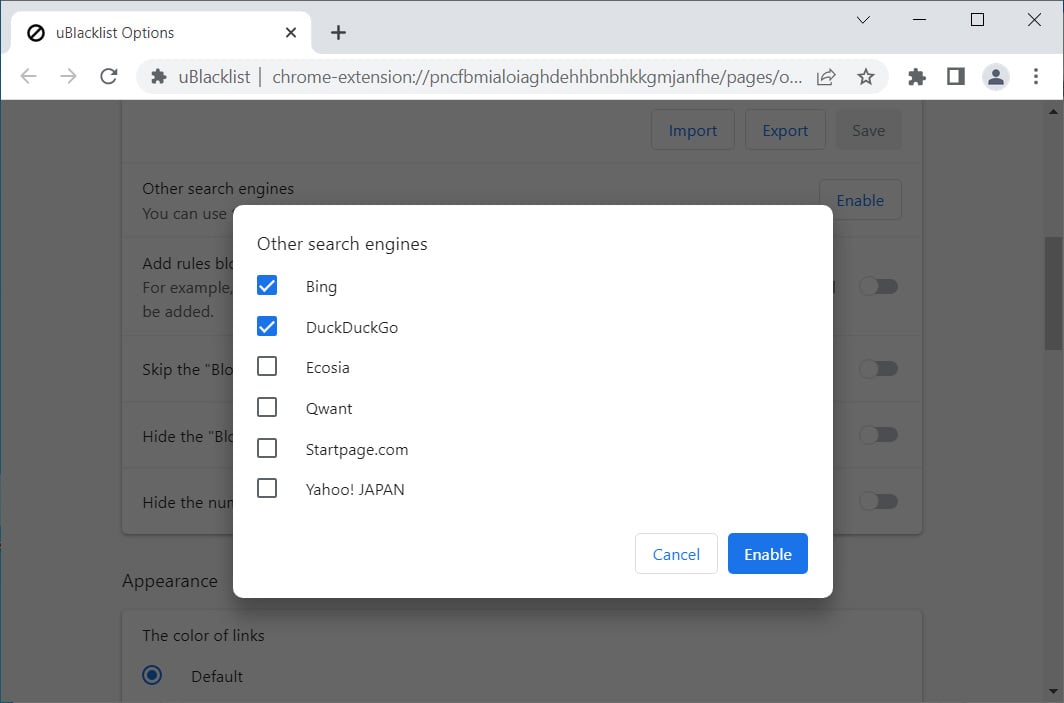
The uBlackList browser extension lets you clean up search results by removing specific sites when searching on Google, DuckDuckGo, Bing, and other search engines.
While the browser extension is not new, being developed since early 2021, it was recently posted to Y Combinator's Hacker News, so we thought we would take a look at it.
uBlackList is a browser extension for both Chromium and Firefox that allows you to input a list of websites you want to be blocked from search results.
Whether these sites are low quality, are known for misleading information, or you simply have no desire to read their content, uBlackList can prevent them from being displayed on the Google, Bing, DuckDuckGo, Ecosia, Qwant, StartPage, and Yahoo! Japan search engines.
Removing sites from search result pages
To get started with uBlackList, install the browser extension from the Chrome Web Store or Firefox Add-ons page. Once installed, you can click on the extension's icon and select 'Options' to configure the extension.
From the options screen, you can add the sites you would like to block from search results using regular expressions or match patterns, as shown below.

Source: BleepingComputer
For example, if you want to remove all pages from example.com and Wikipedia (just an example!) from search results, you could add the following patterns to uBlackList:
*://*.example.com/*
*://*.wikipedia.com/*
Once you click on the Save button and perform a search that returns results from wikipedia.com, you will find that they are no longer displayed, as shown below.

Source: BleepingComputer
Even more helpful, the extension adds a 'Block this site" link next to URLs shown in search results, easily letting you block sites as you see them.
By default, the extension will only remove search results from Google, but as we said previously, it also supports blocking sites in the Bing, DuckDuckGo, Ecosia, Qwant, StartPage, and Yahoo! Japan search engines.

Source: BleepingComputer
It's also possible to configure a URL that contains a list of patterns that should be blocked, which will be downloaded and updated regularly.
Finally, you can configure the extension to synchronize your settings across the Google Cloud, allowing you to use the same settings on different browsers that you may use.
I tested the extension throughout the day and found that it did a great job removing sites that I felt were cluttering up search results related to malware removal.
For those who wish to try out uBlackList, you can install it from the Google Chrome Web Store or Mozilla Firefox Add-ons page or download the source from the project's GitHub page.


Comments
Mallissin - 1 year ago
Would be nice if it used a neutral name like "uBlockList" instead of using inappropriate antiquated nomenclature based on bias.
fromFirefoxToVivaldi - 1 year ago
Would be nice if americans didn't attempt to police language all over the world, especially when the term blacklist doesn't have anything to do with race. The dev is from Japan, he doesn't need to cater to western BS.
SomeOtherGuy - 1 year ago
It is one of those "tell us where you're from without telling where you're from"
SomeOtherGuy - 1 year ago
"Would be nice if it used a neutral name like "uBlockList" instead of using inappropriate antiquated nomenclature based on bias."
Absolutely! Biased names like this should be blacklisted!!
ftcm207 - 1 year ago
You can already block sites from a search result in many if not most search engines. For example, at duckduckgo, you type
-site:example.com
along with your search term(s), like
dog breeds -site:amazon
Or just include -amazon to get fewer results with amazon.
or + amazon to get more.
Duckduckgo’s search commands are here:
https://help.duckduckgo.com/duckduckgo-help-pages/results/syntax/
The minus sign then a term seems to be the common exclusion syntax on some other search engines.
This browser extension seems to just store them in a list it applies to your searches so you don’t have to type them. But maybe it uses another way.
GT500 - 1 year ago
Some browsers (Vivaldi for instance) allow you to edit the URL's used by search engines, so you can manually add whatever you want to your normal search engine's URL if you never want a specific site in your searches, or you can create new custom searches for whatever you want.
I use the feature to customize the settings for the DuckDuckGo search engine, so that Safe Search is always off (blocks too many things it shouldn't), and certain other options are always enabled even in a private window.
fromFirefoxToVivaldi - 1 year ago
>This browser extension seems to just store them in a list it applies to your searches so you don’t have to type them.
No, it uses dynamic filtering.
>You can already block sites from a search result in many if not most search engines.
This would take ages considering how many useless websites worth blocking there are.
HanOddbjorn - 1 year ago
Gossip site blocker also works like this.
https://chrome.google.com/webstore/detail/gossip-site-blocker/mjojhcmecfehllhcjcbhkkpohadogplk